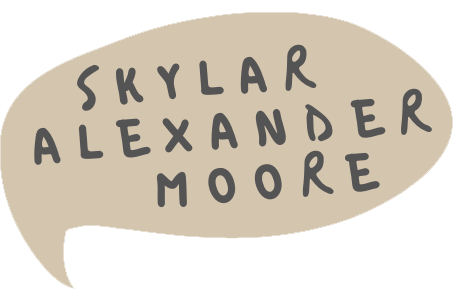Workshopping: Best Practices
This is the second installment in "How Not To Be A Dick (In A Workshop, At Least)" series. Check out the first installment here.
PROOFREAD, OR SUFFER THE CONSEQUENCES
Before you submit your work for workshop, you should take the time to give it a thorough once-over for grammatical and spelling errors. Which is to say, the work that comes to workshop should not be a first draft—it should be at the very least a second, if not a third or fourth.
Real life footage of me when you come into my workshop a mess.
This is a somewhat controversial statement, as workshop environments are often seen as these mythic pits of primordial ooze where all great magnum opera are made—and I’m not denying that this is possible, just pointing out that it’s unlikely to happen if your workshop group is spending your allotted time discussing typos or using all their energy on punctuating your dialog correctly.
While you should be submitting work that has benefited from your attention more than the brief moments it took to scribble it out on a cocktail napkin, there is a balance to be struck; if after those four or more drafts, your work is complete—and I think we all have a sense of when something is “complete” once we finally get there, or at least as close as we can get (“art is never finished, only abandoned” writes Da Vinci)—don’t submit that piece to workshop. Get an editor to proofread for you, then submit that piece for publication or get performing.
However, after all those preliminary drafts, you have a sense you’re on to something good, but there’s just this bit that is giving you trouble—that’s the piece for workshop. In fact, direct your workshop group to what you perceive to be the problem: “guys, gals, nonbinary friends, please, while you’re reading my work, please focus on the scene on page eight—I’m not sure if my ending here is successful and would like your input.”
SUBMIT YOUR WORK WITH A SENSE OF NON-ATTACHMENT
To employ an over-cited quote of Faulkner, “kill your darlings.” Which is to say, hold nothing too dear at the workshop stage; everything is still in embryonic flux, still likely to evolve into something else. When in the workshop, one must be open to the myriad doors that will swing open when seeing from another’s perspective.
To quote Geoffrey Shugen Arnold, “being attached is what prevents us from seeing; it is what clouds… miraculous awareness.” If you enter the workshop too attached to your work, you’ll be wasting your time and everyone else’s; there is nothing to gain. Be open to this “miraculous awareness”—for this openness is how anything solid is made out of the gooey ooze we bring to workshop.
The chips will fall where they may.
A NOTE ON LENGTH
The workshop space is a place of experimentation and discovery, yes, but it is also a place where our time together is too brief. Please try to bring shorter work or stand-alone experts of larger work.
This is no way meant to discourage the workshopping of long work—it’s often more necessary to put a novel through the grinder. I do suggest, however, that you develop a specific workshop group exclusively catering to this purpose. In college, my personal workshop helped me through my mess of a novel—and another girl’s novel, and several poems and short stories by the other people. Assume your workshop partners are quite busy, because they are, and thus be mindful of the time it will take to read your work.
A NOTE ON GRATITUDE
Let’s play the etymology game: “workshop” comes into usage in the 1580s, but doesn’t take on its meaning of “gathering for study” until the late 1930s. It’s a compound composed of two root words—"work" and "shop," both of which have Old English origins you’re welcome to click through and read about. At its very root, the workshop is a labor, and it is a labor without monetary compensation. I'm of the pro-labor persuasion that we proletariats should resist working for free, but in the artistic community, a successful tit-for-tat system has worked to the betterment and enrichment of our culture for basically forever.
I say this all to make two points:
Do the work. Other people are putting in the work for your pieces, so, buddy, you best work too. Don’t shortchange your friends, or your workshop mates, or you can expect you’ll not be invited back into the sandbox.
Show some gratitude. For all our passive aggressiveness and perpetual ope!-ing, we Midwesterners have at least got common courtesy down. Even if you don’t stick to “the Iowa Model” in your workshops, try to be Iowa Nice.
To quote the Buddha, "Let us rise up and be thankful, for if we didn’t learn a lot today, at least we learned a little."
What etiquette tips do you enforce in your workshops? Contribute to the conversation below.



